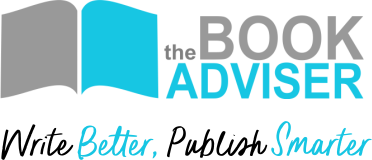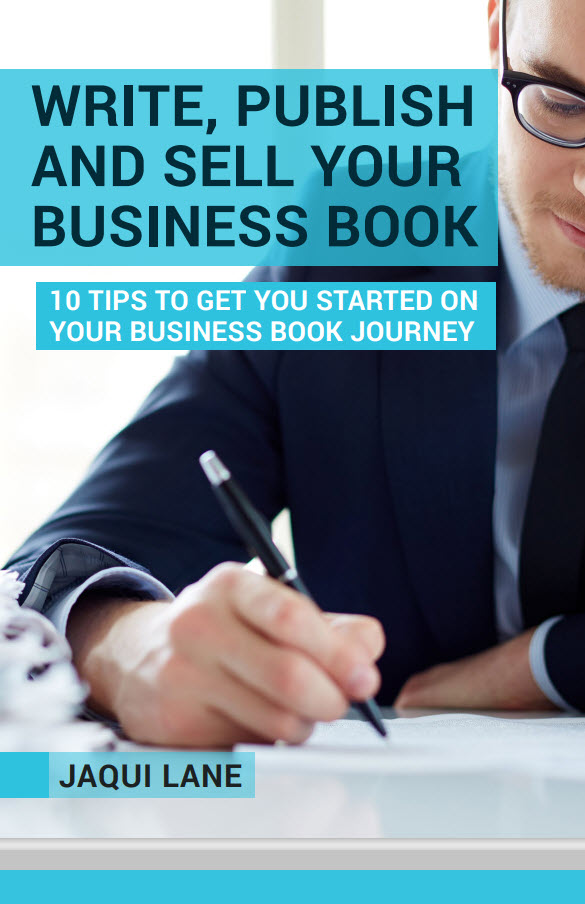

The WRITE Strategy
Welcome to The WRITE Strategy newsletter for business book writers and self publishers.
The Write Strategy is a community of business experts and leaders who want to share and leverage their knowledge, build their profile and be recognised as a leading voice in their field.
AI and its impact on writing - 20 September 2024 Edition
5 things to do

We’ve been learning and experimenting with AI (and getting way better at our prompts and ways to use it). We’ve recently come across Poe ian AI chatbot aggregator allows you to access a wide range of AI chatbots in a single hub and even create some of your own. https://poe.com/
If you’re unsure about to start or maximise how to use ChatGPT you might want to listen to two LinkedIn Lives I had with Peter Stanford where he shares his insights about how to write prompts with ChatGPT (Interview1 Interview2). He’s also published a book about it which you can access here. https://www.thelittlebookofchats.com/
Have you ever thought about entering a business award or book award? I know I have . . . but something stops me. If you’re the same watch the recent LinkedIn Live I ran with Lauren Clemett from The Audacious Agency whose team are experts in Awards. Interview Link
1. Explore AI, and not just ChatGPT
2. Enter a Business Award or Book Award
3. Explore IngramSpark
Explore IngramSpark a global self publishing platform that a number of our clients have used over the years. They offer a wide range of services including Print on Demand and global distribution – hard cover, soft cover and eBooks. https://www.ingramspark.com/
4. Ask me for help
I am an Ambassador for the Alliance of Independent Authors, a non-profit organisation that is dedicated to ethics and excellence in self publishing. ALLi, as we’re known, is there to help self publishing authors and provide information, support and advice. https://www.allianceindependentauthors.org/
5. Support literacy in our young people
I’ve been a Role Model for Books in Homes, a non-profit that provides new books to children in disadvantaged, regional and remote schools across Australia. You can support one child to receive nine books over one year for $95.00, or there are other options. https://booksinhomes.com.au/get-involved/donate/
There’s lots of excitement and fear and loathing around the impact that AI will have on those of us who write business books. It seems every day there’s another AI tool that will solve all our writing problems. The truth is while ChatGPT and other tools such as Perplexity, Gemini (previously Bard) and Poe can make lots of elements of writing faster and more efficient, good writing that delivers new insights and your perspective on challenges in your specific area, still need your personal touch.
We’re road testing lots of different AI tools for writing. We approach AI like another smart person in the conversation, and prompts can and should be conversations. We’ve used it to help develop book titles and subtitles, content outlines, chapter structures, blubs for the back cover of books and many other elements of a book.
What we don’t do is copy and paste its responses. You can tell pretty quickly if someone has done this, and that’s no good for your reputation.
The other aspect of AI that’s causing a stir is the massive scraping of content by the big companies of content off the web – possibly your book – without permission and pretty much without any care that they’re ripping off people. There’s a number of court cases in the US and Europe happening at the moment aimed at preventing this abuse of the ‘fair use’ provisions of copyright.
In the meantime, just be careful what you share online and put your book behind a landing page or opt in so it can’t be scraped so easily.
5 things from The Book Adviser
Dr Paul Donovan launched his book Bosses Behaving Badly. If you are a boss, or work with one that’s difficult, this book will help you understand why and what you can do about it. You can buy his book directly: https://www.pauldonovan.com.au/
1. Bosses Behaving Badly
2. Working with people who write non fiction
3. Writing your memoirs
5. AI and Big data
4. Marketing and sharing your book
While we focus on business books we also work with people who write non fiction across a wide of topics. Tony Farnham recently launched his first (and he say’s only) book, The Politician’s Epiphany. Skewered political elite rotate on a satirical spit roast. Political satire at its best the story follows the journey of a fictional politician, Malcolm Rudder, through the maze of party politics and his local constituents. You can buy it from our store. CLICK HERE
We’re currently working with individuals on their memoirs (and have published 10 memoirs to date. Such books are by their nature very personal. For some their memoir is for family and friends only, for others it’s a story they want to share with the world. One recent project we worked on was the memoir of Giang Seng, From Vietnam to Australia, Sang’s Memoirs. It’s the extraordinary story of Sang’s life in Vietnam before, during and after the Vietnam war, and journey of his family from South Vietnam to Australia. You can buy a copy via our Shop. CLICK HERE
Marketing and sharing your book doesn’t end with the launch. Annie McCubbin has now published two books and has recently started a Podcast – Why Smart Women. You can listen to Annie here: (https://www.youtube.com/@WhySmartWomen)
AI and Big data are hot topics at the moment. We’ve worked several business executives and leaders on books around this topic. In 2022 we worked with Dr Catriona Wallace and a group of academics on their book Checkmate Humanity. The how and why of Responsible AI. (https://checkmatehumanity.com/) In early 2024 Tim Trumper launched his book AI: Game on. How to decide who and what decides. CLICK HERE Peter Stanford self published his practical book about ChatGPT, The Little Book of Chats and I ran two LinkedInLives with Peter as there is so much demand for his insights (Interview 2). There are more in the pipeline.
5 things to know
Before you start writing your book create a Style Guide. No, this is not a plan for what you are going to wear while you are writing, it’s a guide to the spelling, grammar, punctuation and specific terminology you are going to use throughout your book. For example: are you going to use Oxford English or American English? How are you going to treat numbers (numerals or spell them out, or a bit of both); How are you going to write dates (yes there are different styles); How are you going to organise your heading hierarchy – headings, sub headings, sub/sub headings, bullet points, numbers…others
1. Create a style guide
2. Copyright protection
3. Quoting and referencing other writers/books.
4. How the title and subtitle or your book work together
5. Back cover copy is important
Always put the copyright symbol and the date on working drafts of your manuscript and on the Imprint page of your book. Linked to this if you are sending out drafts of your manuscript create a PDF version and send this.
If you are quoting anyone whether it be a sentence, quote, part of a paragraph it is best practice to footnote this and provide recognition/credit to the person you are quoting. You don’t need to get their permission to quote them if you are using less than 100 words. Some say that provided you use less than 10% of a work, referencing is not required. I’d suggest you reference them anyway. Copyright law is different depending on what country you are publishing in. The general rule refers to ‘fair use’. I advise always reference and credit others’ work to be on the safe side AND really it’s just polite to do so.
When you start thinking about the title of your book think about a title and a subtitle and how they work together. They also have to work when there isn’t a visual of your book cover, so it’s important to think about a title and subtitle that makes it super clear to your potential target audience what your book is about. And, of course, it also helps with being discovered through SEO (search engine optimisation).
Most author don’t give much thought to the copy that goes on the back cover of their book, but this is super important. Why? Because next to the front cover (title and subtitle) the back cover copy will likely be the next information someone reads about your book. If it’s not compelling they won’t take the next step to buy it. And, you only have 1-2 short paragraphs to tell the potential reader what the book is about and why it is relevant to them.

special eBook offer
If you’ve been thinking about writing your business book, or professional/medical advice book there’s some important things you need to know BEFORE you start. That’s why we’re sharing this eBook – 10 tips to get you started on your business book journey.
Only 1-2% of people who say they want to write a book actually do this. The main reason why is because they start writing without thinking about some of what I call the basics. As a result they get lost in their writing, lose confidence and get demotivated. Which is a real shame.
So, don’t let this be you. Request a copy of the Free eBook and do the thinking before you start your writing.
We’re passionate about business books and helping people share their knowledge and insights to a wider audience as we believe each of us can change the world for the better, one book at a time. If you’ve found this newsletter informative, inspiring or want to share some of the books we’ve mentioned, please share it with your colleagues, friends and family.
help spread our message
get more of The WRITE Strategy
Do you know of someone that would benefit from our services? DM us or email [email protected]
Was this email forwarded to you? Get your own subscription by clicking SUBSCRIBE and completing our form.

Copyright 2024 - The Book Adviser